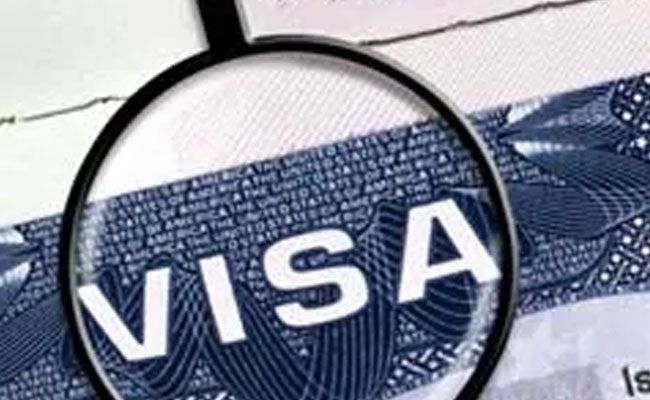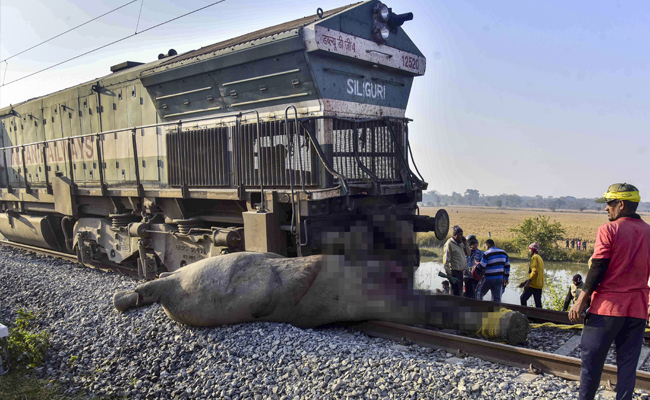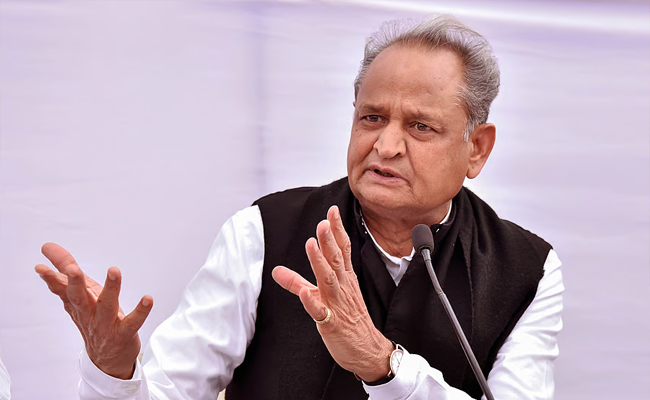Washington (PTI): The wait time for a US visitor's visa interview in India has been reduced by 60 per cent this year, a senior official has said, attributing it to several steps the United States has taken, including increasing the number of officials and opening other diplomatic missions to process these applications.
Deputy Assistant Secretary of State for Visa Services Julie Stufft told PTI in an interview that the goal of the State Department is to get to 1 million visas issued this year, which would be above the pre-pandemic number.
"We have increased the number of officers going to India. We have set up arrangements, which is unprecedented, with other embassies in the world like Bangkok to take Indians who are seeking visas. We are opening a new consulate in Hyderabad... and we're just focused on making sure that we can bring the wait time down in India," she said.
Stufft noted that Frankfurt, London and Abu Dhabi have taken a lot of Indian citizens who are seeking visas.
"We have asked these missions to take Indians as if they were from their own host country. Especially in places like Bangkok where there is no visa required for Indians and it is a relatively short flight.
"Obviously this is not ideal. We want Indians to be able to apply in India, and that's where we'll get to," she said.
More than 100 US diplomatic missions have been issuing visas to Indians.
"As a result of all of these efforts, the visitor visa interview wait time has decreased by 60 per cent just in the last couple of months. This is a result of all the work that we've put into making sure that Indians who wish to travel to the US can do so."
Stufft said that currently, "visa production in India is 40 per cent higher than it was before the pandemic" and asserted that the State Department was working hard to bring down the wait time.
In February the US had the highest on-record production of visas in India.
"Our team there is working very hard and they're well on their way to accomplishing the 1 million visa goal," Stufft said.
In addition to the visitor's visa, the State Department official said they are working on other types of visas including, student visas.
"Because we have been able to expand interview waivers, meaning fewer Indians need to come to the embassy or consulate for an interview, we can process that without seeing the applicant. That has helped us tremendously because we have had consular officers in dozens of countries who are actually remotely processing these Indian visas," Stufft said.
This has made it possible for people who don't need an interview, those who have travelled to the US before, to get their visa in a record time of less than two weeks, she said.
"It really is a global effort. Because we have such strong ties with India and the relationship between our two countries means that the categories of visas are the highest in India.. students, tech workers, and crew members. It's a high cultural, educational and work relationship between our countries," Stufft said.
She said anyone who has to travel to the US urgently for any sort of humanitarian matter, those cases will be expedited.
"But make your appointment, find the place that you can go in India or outside of India where it's possible. And bear with us as we bring these wait times down. We're very excited to be hitting records every month with the number of visas that we're issuing in India," she said.
Stufft also said that State Department is very excited about launching a pilot project on domestic renewal of visas soon.
Under this, holders of certain work visa categories who are living in the United States can apply for visa renewal without leaving the United States.
"What this means in particular for a large number of tech workers from India is that people would not have to go back to India or another post in the world to apply for their visa," Stufft said.
"That's very exciting for all of us. It will take time. We're building up that operation from zero. That's something that we have not done for several decades at this point. This will have big benefits for Indians who are living and working in America," she added.
Let the Truth be known. If you read VB and like VB, please be a VB Supporter and Help us deliver the Truth to one and all.
Jamshedpur (PTI): Over half a dozen passenger trains will remain cancelled for three days from December 22 under the Chakradharpur division of South Eastern Railway due to the movement of elephants, a railway statement said on Sunday.
The Memu train services will remain cancelled between December 22 to 24, a South Eastern Railway statement said.
ALSO READ: Woman cop shoots, injures rape accused trying to flee during crime reconstruction in Gujarat
Movement of a herd of elephants has been noticed near rail tracks between Chakradharpur (Jharkhand's Singhbhum)-Jharsuguda (Odisha) section of the division, especially Bandamuna during night, said Senior Divisional Commercial Manager, Chakradharpur division of S E Railway, Aditya Choudhary.
The train services are being slowed down, causing traffic congestion and subsequently delaying train movements, he said.
The trains which will remain cancelled due to elephant movements in the section include 68025/68026(Ckp-Rou-Ckp), 68043/68044 (Tata-Rou-Tata), 18175/18176(Hte-Jsg-Hte), 68029/68030 (Rou-Jsg-Rou), 58151/58152 (Brmp-Bxf-Brmp) PASS, 68125/68126 (Tata-Bbn-Tata) MEMU, 68019/68020 (Tata-Gua-Tata) Memu, 68010/68009/68006 (Ckp-Tata-Kgp-Ckp) Memu, it added.





